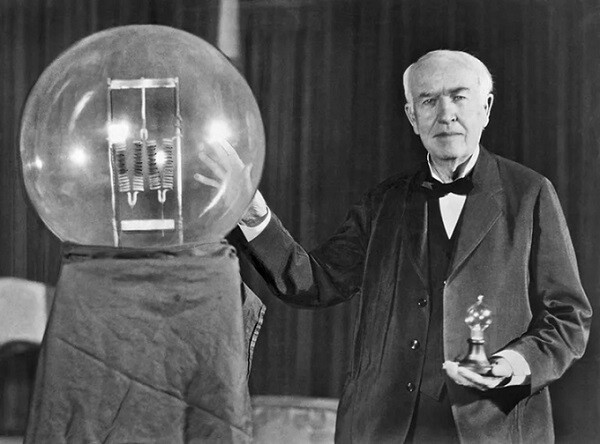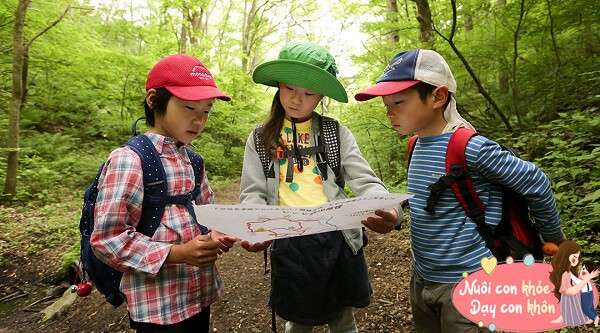Some children become upset and start crying when they see their friends leaving, while others calmly wait without any worries…
Parents can observe how their children react when they are not picked up on time. Do they remain calm and optimistic, or do they become pessimistic and lose control of their emotions?
Even at a young age, these different reactions showcase maturity in character and indicate very different future prospects.
A personality survey and analysis of over 1,000 successful Chinese individuals over the age of 30 considered aspects such as annual salary, family happiness, etc. The study found several common personality traits worth emulating, especially four distinct traits evident from a young age.

Demonstrating perseverance in the face of adversity
Edison experienced thousands of failures during his quest to invent the light bulb. His perseverance led him to believe in his eventual success. Each failure was not an end but a valuable lesson. He famously said, “I have not failed. I’ve just found 10,000 ways that won’t work.” His determination and ability to learn from these trials led to groundbreaking innovations in the electrical industry.
Beethoven, during his prime creative years, lost his hearing. Despite this cruel twist of fate, he continued to create, driven by his inner passion for music and unwavering faith. Even without his hearing, Beethoven composed immortal musical masterpieces, proving that passion and perseverance can overcome any obstacle. He stands not only as a composer but also as a symbol of spiritual strength and resilience.

Determination and the ability to learn from failures led Edison to groundbreaking innovations in the electrical industry.
Jack Ma faced numerous failures, rejections, and ridicule in his early entrepreneurial days. He was rejected by hundreds of companies when job hunting, but this did not deter him. Instead, he learned from these failures and used them as motivation to grow. Despite countless setbacks, Jack Ma persevered and never gave up on his entrepreneurial dreams.
If children possess the quality of perseverance and do not easily give up when faced with challenges, their diligence in overcoming obstacles can take them further toward their goals and eventual success. Perseverance is not just about patiently pursuing dreams but also about accepting failure as an inevitable part of the journey. Children will learn that each failure is not an end but an opportunity to learn and grow.
Moreover, developing perseverance helps children cultivate self-reliance and determination. When children know they can overcome challenges, they will be more confident in their decision-making and actions.

Children with confidence and a positive, optimistic outlook on life
Olympic champion Deng Yaping shared in an interview that she was never favored because of her height. However, she refused to acknowledge defeat and firmly believed in her abilities.
Confident children are more likely to succeed in the future.
Confidence is like a key that unlocks the door to success for children.
Confident children dare to try new things, embrace unknown challenges, and bravely step out of their comfort zone.
When faced with academic tasks, social situations, or new hobbies, they will actively explore, and this courageous spirit will bring them more opportunities.

Children with confidence and a positive, optimistic outlook on life.
For example, in school, confident children may proactively sign up for various competitions and club activities. Through their relentless efforts, they accumulate rich experiences and expand their capabilities.
Confident children usually have a positive attitude.
They always see the bright side of things and are hopeful about the future. This positive mindset helps them remain optimistic in the face of difficulties and believe that they will find solutions to their problems.
Additionally, a positive attitude can be contagious, spreading to those around them. It attracts positive energy and draws people together in pursuit of mutual success.

Children with a sense of responsibility and self-discipline
If you observe closely, you’ll notice that children who excel academically rarely need parental supervision. They tend to be highly responsible and disciplined.
Responsible children take their studies seriously and understand that learning is their responsibility. They proactively complete homework, actively participate in class discussions, and take ownership of their academic results.
Moreover, self-disciplined children can manage their study time effectively, create study plans, and diligently execute them, leading to excellent outcomes.

Children with a sense of responsibility and self-discipline.
For instance, they will take the initiative to review and preview during their free time, undistracted by external temptations, and focus on improving their knowledge.
Children with responsibility and self-discipline also possess strong self-management skills.
They can manage their time, finances, and health effectively, leading a well-organized life and maintaining good habits. They will work and rest at the right times, persistently exercise, eat healthily, and take responsibility for their physical and mental health.
This self-management ability will accompany them throughout their lives, providing a solid foundation for success.

Children with a strong sense of curiosity and a drive for exploration
Some children ask “why” incessantly, while others bravely seek to understand what they don’t know.
A strong sense of curiosity and a drive for exploration are excellent qualities in children.
Inquisitiveness motivates children to engage with the world around them.
They will continuously ask “why” and actively seek answers. In this process, they accumulate a wealth of knowledge.
For example, curiosity about birds flying in the sky may lead them to understand the habits and migration patterns of birds, while curiosity about the twinkling stars at night may spark an interest in astronomy.
This accumulation of diverse knowledge lays a solid foundation for future learning and development.

Children with a strong sense of curiosity and a drive for exploration.
Children with a drive for exploration will be braver in trying different methods to solve problems they encounter.
When faced with difficulties, they will not give up easily but will actively think and persevere.
For instance, if a child is building with Lego blocks and the structure collapses, a curious child will continuously try different construction methods, thinking about how to make the blocks more stable.
Through such practices, children develop analytical and problem-solving skills, which are crucial for their future studies, work, and life.
The Fortunate Foot: Unveiling the Secrets of Wealth and Prosperity Hidden in the Length of Your Toes
In the past, it was believed that one’s future could be foretold simply by observing the length of their toes. This ancient practice was thought to provide insight into a person’s destiny and fate. While it may seem like a curious superstition to modern eyes, it showcases the ingenuity and depth of traditional wisdom.






































